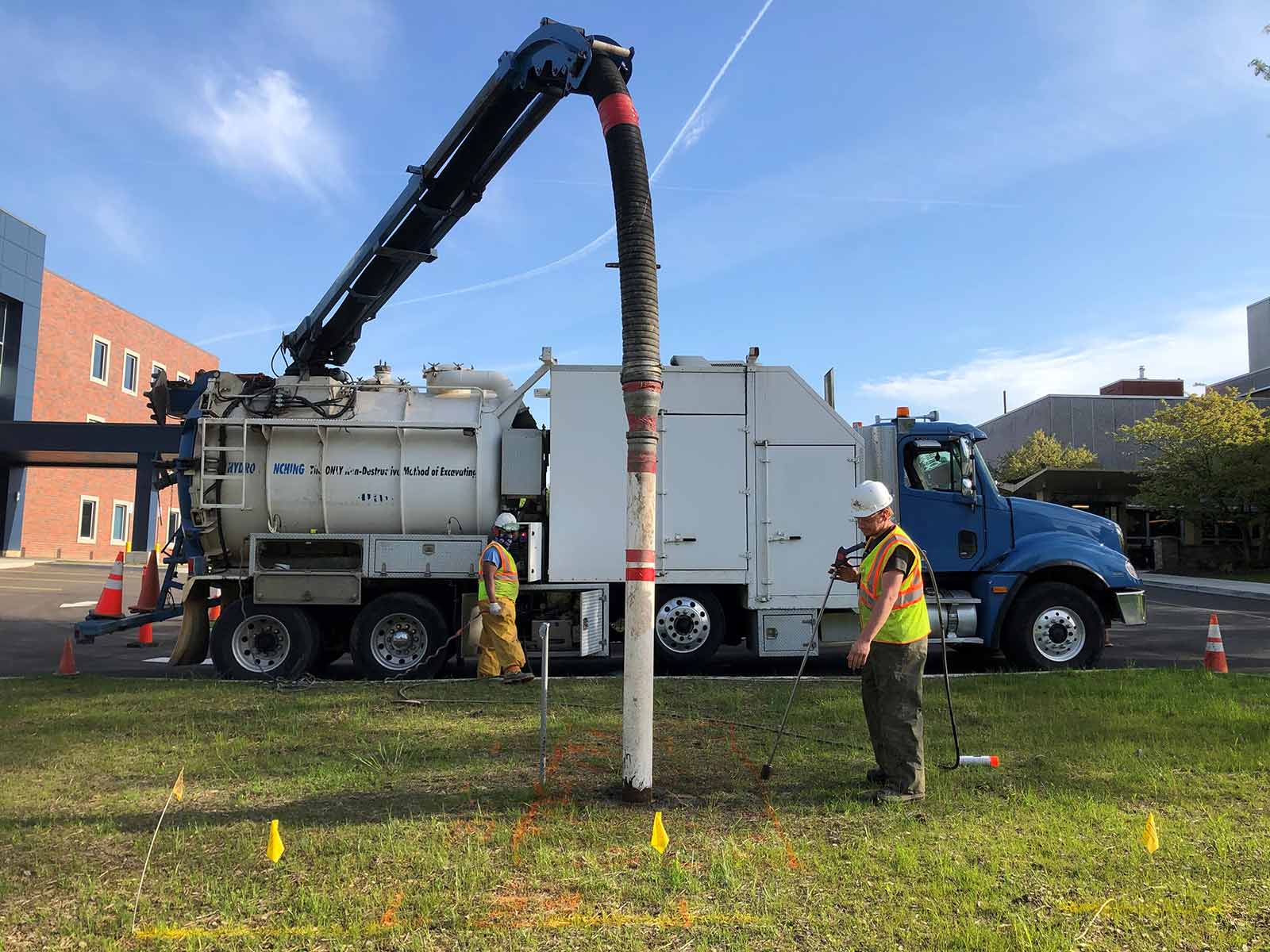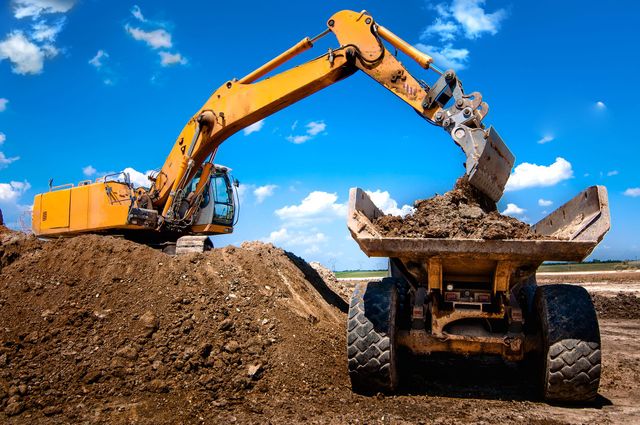Introducing the Art of Excavation: Pro Tips for Safe and Productive Excavating
In the realm of excavation, the mastery of risk-free and effective excavating is an art kind that requires expertise, adherence, and accuracy to recognized techniques. As dirt is turned and earth is relocated, the complexities of excavation disclose themselves, demanding an eager understanding of devices, soil make-up, safety protocols, and ecological factors to consider. The experience needed to browse these aspects effectively can mean the difference in between a successful excavation project and a possible disaster. By deciphering the layers of this detailed procedure, a world of approaches and insights awaits those looking for to elevate their excavation skills to brand-new elevations.
Importance of Correct Equipment
To make certain the security and performance of any kind of excavation task, using the ideal equipment is extremely important. The right tools not just improve performance yet additionally mitigate threats related to digging. Excavation jobs vary in range and complexity, varying from small property landscaping jobs to large building and construction tasks. No matter the task dimension, having the correct equipment can make a significant distinction in the outcome.
Excavators are essential pieces of machinery in any excavating procedure. These functional devices been available in numerous dimensions to fit various job needs. Mini excavators are suitable for smaller jobs, while bigger excavators deal with more comprehensive tasks successfully. Backhoes are another crucial devices kind, integrating the features of a loader and an excavator in one machine. They are important for jobs calling for adaptability and maneuverability.
Excavators excel in jobs that need pushing huge amounts of soil or particles. By investing in the proper equipment, excavation jobs can be finished safely, on time, and with precision.
Comprehending Soil Make-up
A detailed grasp of dirt make-up is basic for performing excavation projects with accuracy and safety and security. Understanding the various kinds of soil is crucial as it directly impacts excavation methods, devices option, and general task efficiency.
Silt bits are smaller than sand however larger than clay, using modest drain and communication. Organic matter, such as decomposing plant material, affects dirt fertility and stability.
Before beginning excavation, carrying out dirt tests to identify its make-up and features is vital. This information helps in picking the ideal equipment, carrying out safety and security steps, and establishing excavation methods customized to the certain dirt conditions - dump truck companies in ohio. By recognizing soil make-up, excavation experts can enhance project end results while guaranteeing safety and security and adherence to best practices
Safety And Security Steps and Protocols
Recognizing dirt structure is the cornerstone upon which precaution and protocols for excavation projects are constructed, making sure the well-being of employees and the success of the endeavor. There are a number of essential actions that should be carried out to minimize dangers and avoid crashes. when it comes to safety and security throughout excavation.
First and primary, before any type of excavating starts, a thorough evaluation of the site should be performed to determine any possible threats such as underground energies, unpredictable dirt conditions, or close-by frameworks that could position a threat. It is important to have an experienced person oversee the excavation procedure to make certain that all safety procedures are followed purely.
Furthermore, all employees included in the excavation should be properly educated in safe try this site digging methods and the correct operation of devices. By sticking to these safety actions and methods, excavation tasks can be finished effectively and without case.
Effective Excavation Preparation
When embarking on an excavation project, meticulous preparation is important to guarantee effectiveness, safety and security, and effective results. Effective excavation preparation entails a number of vital actions that are crucial for the smooth execution of the job. The very first step is to conduct a comprehensive site evaluation to recognize any type of potential dangers, such as underground energies or unstable dirt conditions. This info is vital for creating a comprehensive excavation strategy that includes safety actions and run the risk of mitigation strategies.
As soon as the site analysis is full, the next action is to produce a clear timeline and schedule for the excavation activities. This includes establishing the sequence of jobs, tools requirements, and manpower allotment. Proper scheduling helps avoid delays and guarantees that the project remains on track.

Furthermore, interaction amongst all employee is extremely important throughout the preparation phase. Clear regulations, normal updates, and effective sychronisation are important for an effective excavation project. By investing time and effort in thorough planning, excavation teams can significantly improve efficiency, decrease risks, and accomplish effective outcomes.

Taking Care Of Environmental Factors To Consider
With raising emphasis on ecological sustainability in construction methods, handling ecological considerations has come to Homepage be a crucial aspect of excavation projects. Excavation activities have the potential to affect the surrounding atmosphere with dirt disintegration, sediment drainage, habitat interruption, and contamination of water sources. To minimize these threats, it is necessary to execute finest practices that focus on environmental management.

Furthermore, correct waste management is vital to stop dirt and water contamination. Carrying out treatments for the disposal of harmful materials, recycling of waste materials, and reducing making use of unsafe chemicals can significantly minimize the ecological influence of excavation tasks. By incorporating these practices into excavation planning and execution, construction business can make sure that their jobs are not only risk-free you can check here and efficient but additionally environmentally accountable.
Final Thought
In final thought, mastering the art of excavation requires an extensive understanding of appropriate tools, dirt structure, security measures, and effective planning. By complying with these guidelines and thinking about ecological factors, excavations can be carried out securely and successfully. It is vital to focus on safety and security and productivity in every digging task to ensure effective end results.
As soil is transformed and planet is moved, the complexities of excavation reveal themselves, demanding an eager understanding of devices, dirt structure, safety methods, and environmental considerations.To guarantee the safety and performance of any kind of excavation job, making use of the appropriate tools is vital.A comprehensive understanding of soil composition is basic for executing excavation projects with precision and safety. Comprehending the different kinds of soil is vital as it directly affects excavation methods, equipment choice, and overall project performance. By understanding soil composition, excavation professionals can enhance project end results while making sure safety and security and adherence to finest techniques.